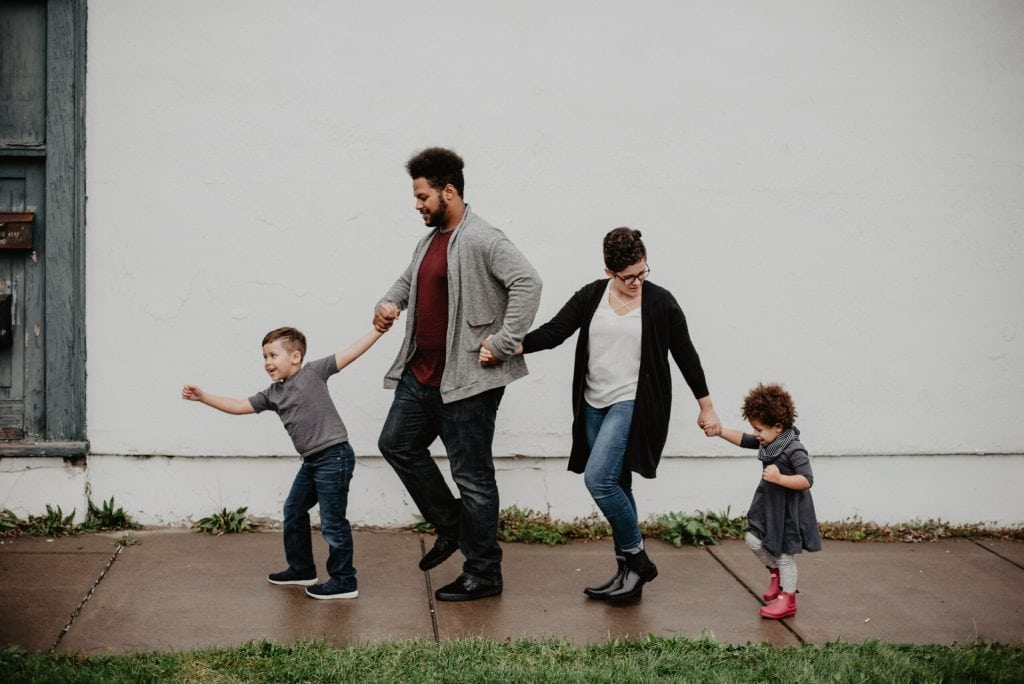Why Grief and Your Child?
We often think about grief and adults, but what about when our children struggle with loss and grief? When they face life’s losses, how do they find hope when they’re hurting?
In Grief and Your Child, I apply biblical principles of loss and hope to the grief experience of children and teens. The book focuses on helping parents and counselors to understand and empathize with a child’s grief. It then seeks to equip parents and counselors to help children and teens to find God’s healing hope in the midst of life’s painful losses.
In Grief and Your Child, I walk through a “counseling vignette” with “Jared” and his parents (“Elyse” and “Dexter”). The vignette illustrates the patient, compassionate, back-and-forth journey of grief that adults can take with each unique child.
At the end of the booklet, I share four parental grief ministry principles. I introduce this section with these words:
“Parents, by sitting in on our counseling sessions with Jared, Elyse, and Dexter, you’ve gained a glance into your own child’s grieving heart—understanding and empathizing with your child. You’ve also read a number of practical/relational/biblical principles for ministering to your child. In this final section, we want to expand on how to minister Christ’s compassionate comfort and healing hope to your child’s grieving heart.
Remember, children need good parenting even more than they need good counseling. You can be your child’s best biblical counselor.”
Parental Grief Principle #1: Face Your Grief Face-to-Face with Christ
You’ve heard the illustration about what flight attendants say concerning a flight emergency, “Adults, first put on your oxygen mask, and then put your child’s mask on them.” Without your oxygen mask, you’ll pass out and be no help to your child.
Likewise, if you’re not dealing with your grief—in whatever losses you’re experiencing—you’ll be less helpful to your child. Recall 2 Corinthians 1:3-4: the God of all comfort comforts you in all your troubles so that you can comfort those—like your child—in any trouble, with the overflow of the comfort you’ve received from God. The best comfort-givers are comfort-receivers from the God of all comfort.
Parental Grief Principle #2: It’s Normal to Feel
Jared felt a variety of emotions: grief, sadness, fear, and anger. All casket experiences—especially the final casket of death—are intruders. Grief has a piercing stinger that wounds deeply.
Allow your child to vent and lament. Don’t force your son or daughter to “get it together.”
Give your child permission to grieve. One of the most powerful ways to do this is by giving yourself permission to grieve and allowing your children to experience—to the degree they can handle it—your own sadness.
Mourn with your children when they mourn. Weep when they weep (Rom. 12:15). Hurt with them when they hurt.
Practice lingering listening. Hear before you speak (Prov. 18:13; James 1:19). Feel before you fix (1 Cor. 12:26). Like the Holy Spirit, groan (Rom. 8:26) before you teach (Rom. 8:28).
Share your soul and Scripture. Our tendency is to rush in with answers before we even hear the question and before our child knows we care about their concern. As parents, we can follow Paul’s model of sharing Scripture and soul. “Just as a nursing mother cares for her children, so we cared for you. Because we loved you so much, we were delighted to share with you not only the gospel of God but our lives as well” (1 Thess. 2:7-8).
Realize that children’s actions often express emotions. Children rarely have the emotional intelligence or maturity to verbalize exactly what they feel. Their actions speak for their emotions. Seek to prayerfully discern what emotional message your child’s behavior is sending.
Parental Grief Principle #3: It’s Helpful to Prepare Where Possible
In Jared’s vignette, his parents could have prepared him better for what he was about to face. It’s understandable that they did not—they were not prepared either. Nothing truly prepares us for death. But a few actions and attitudes can help.
Pray before communicating. Elyse blurted out, “Get in the car, Jared. Your Grandfather just passed away.” Her communication could have been improved with a prayer, “Father, help me to share this difficult loss in the gentlest way possible.”
Communicate before attending funeral services. Jared was ill-prepared for many of the experiences at the funeral home and the funeral—especially the open casket. Walk your children through what they are likely to experience. Talk openly with them about their questions, concerns, apprehensions, and fears.
Parental Grief Principle #4: It’s Possible to Hope
Do not merely give your child permission to grieve, but also offer your child encouragement to cling to Christ. Model for your child clinging-courage as you take your grief to Christ your Victor, to Christ your big and loving Shepherd-King, to Christ your Deliverer and Savior, to Christ who hears and cares, to Christ your comforting and encouraging Divine Counselor. Model finding hope in the Trinity—in the Father of compassion, in the sympathizing, suffering, helping High Priest, in the groaning Holy Spirit.
Bathe your child in hope-giving Scripture. Grief, loss, casket experiences, and death can be the exact time the Word comes most alive—what a paradox. The written Word points to Christ the Living Word—who is alive forevermore. Read Scripture together. Weep Scripture together. Cling to Scripture together. Pray Scripture together.
Relate God’s story to your child’s story. Picture it like this: You stand with your child between two worlds, between two stories—the earthly temporal story of death and the heavenly eternal story of life. With one foot, always pivot into your child’s earthly story of grief, pain, hurt, loss, and confused feelings. With the other foot, always pivot together with your child into Christ’s heavenly, hope-filled story.
Remind your child that you’ve read the end of the story. Life triumphs over death, hope triumphs over hurt, and Christ triumphs over the devil and evil.
“And I heard a loud voice from the throne saying, ‘Look! God’s dwelling place is now among the people, and he will dwell with them. They will be his people, and God himself will be with them and be their God. He will wipe every tear from their eyes. There will be no more death or mourning or crying or pain, for the old order of things has passed away’” (Rev. 21:3-4).
Questions for Reflection
1. As a parent, pastor, or counselor, how prepared are you to minister to children in their grief?
2. How could you become better equipped to share with a child about God’s comfort in loss?
3. Of the four grief principles in the post, which one do you think would be most important for you to add to your grief ministry focus?
A Word from Bob: On August 21, 2021, New Growth Press will release Grief and Your Child: Sharing God’s Comfort in Loss. You can learn more about the booklet here. Today’s post seeks to capture the big picture of how to comfort children during times of loss and grief.
*This blog was originally posted by Biblical Counseling Coalition, view the original post here.
















